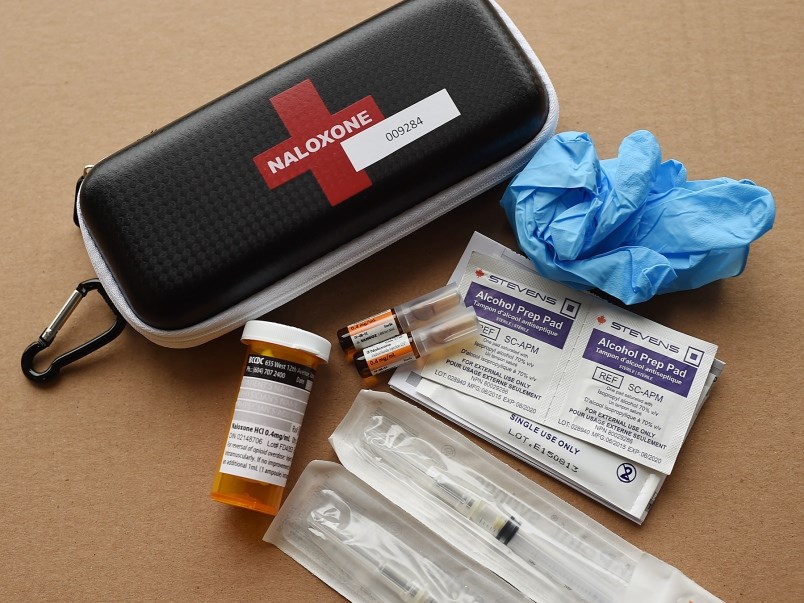North Shore residents will soon be able to get free training on how to reverse an overdose.
With funding coming from the provincial government, St. John Ambulance is holding two naloxone training sessions in October and they are inviting anyone who feels they might be in a situation where they would see someone overdosing to get trained.
The province recognized that short, half-hour training sessions provided at health clinics and pharmacies might not help people who aren’t familiar with using needles for administering medications, explained Drew Binette, who manages the opioid overdose training program with St. John Ambulance.
“The course is designed for anyone at any level of first aid,” he added.
The funding provided by the province is meant to train 5,000 people across B.C. to use overdose-reversing naloxone kits. So far, since starting in April, about 1,000 people have been trained, said Binette.
The course is hands-on and scenario-based, he explained, and it covers a wide variety of topics around drug use, for example, what opioids are, how B.C. got into the overdose crisis it’s in, as well as going over statistics and dispelling myths around drug use. Then there will be training in how to administer naloxone, what happens when someone comes back from an overdose and how to manage the scene after an overdose – making sure everyone is safe.
There will also be a discussion about how to know if someone is overdosing or experiencing another type of medical emergency and how someone who reverses an overdose should take care of themselves after what can be a traumatic experience.
People who overdose on drugs are not necessarily homeless or junkies, Binette said, adding that the world today is such that people experiment with drugs and these drugs are often tainted with fentanyl.
Part of the three-and-a-half hour training will educate participants in how to help reduce the stigma around drug use and overdoses, and discrimination against drug users.
“It’s not a decision someone is making – no one chooses to take a drug because they want to die,” Binette said. “The three people who will die today (of an overdose) are not choosing to die.”
Recent studies have shown that about 80 per cent of illegal drugs in B.C. contain fentanyl, which has been identified as causing overdoses and deaths.
In addition to learning how to inject someone with naloxone, the course will go over CPR including artificial respiration, which is crucial in preventing brain damage in someone who is in respiratory arrest because of an overdose.
The course is suitable for anyone who might come across someone who uses illegal drugs, for example, family members of drug users or groups who work with vulnerable populations. Binette said their line is “one more person trained is one more person saved.”
According to BC Emergency Health Services data, there were 225 overdose calls in North Vancouver in 2017 (compared to 253 in 2016 and 207 in 2015). In January to June, there were between 14 and 21 calls monthly for overdoses and poisonings in North Vancouver. In West Vancouver, there were 74 overdose calls in 2017, up from 59 in 2016.
As of Aug. 15, 114,170 naloxone kits have been distributed across the province.
The two Opioid Overdose Response Training sessions will take place on Oct. 11 and Oct. 25, 6 p.m. to 9:30 p.m. at St. John Ambulance, 223 Mountain Hwy., North Vancouver.
To sign up, go to startsavinglives.ca.



